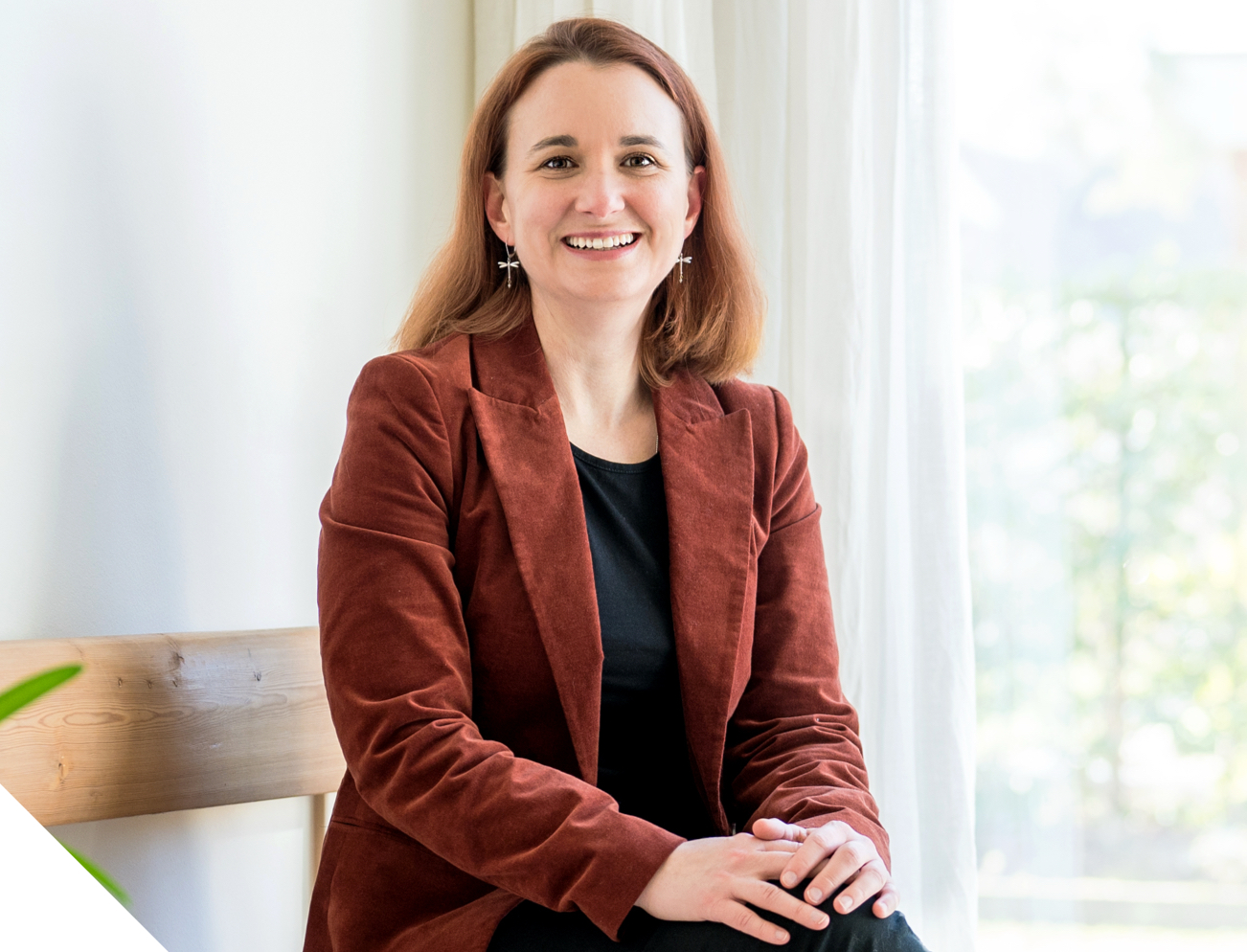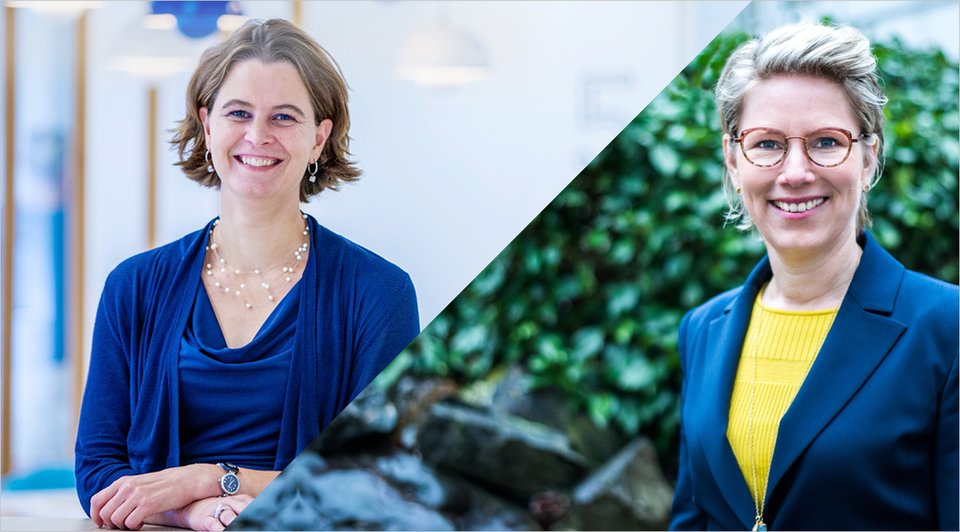Patient’s Perspective
04
Bridging the Gap Between Patients and Early-Stage Research
At Oncode Accelerator, we aim to outsmart cancer and impact lives. But before life-changing therapies get to patients, extensive early-stage, ‘preclinical’ research must be done to make sure those medicines are safe and effective. Preclinical research can sometimes seem far removed from the patients that it should eventually benefit. We spoke with Patient Advocate Katell Maguet to understand a patient perspective on why - and how - we should bridge the gap between patients and early-stage research.

Before cancer therapies reach patients, a lot of research is needed to understand cancer biology, design and optimize treatments, and test their safety and efficacy. At this early, ‘preclinical’ stage, access to patient data and materials like biopsies and genetic data is invaluable. For example, these resources can help researchers identify new drug targets, and patient tissues are necessary to develop complex research models like organoids – “mini-organs” that mimic the characteristics of patients’ tumors better than traditional models, improving research reliability and enabling the development of more tailored therapies.
As a scientist herself, Katell Maguet understands the importance of research. "I’m a researcher, so I say yes to every study," she explained with a laugh. After studying life sciences with a specialization in applied statistics, Katell worked in research and development for 15 years. However, in 2021 Katell found herself on the other side of research.
“I was diagnosed with stage 3 colorectal cancer. I was only 40, so that was a big shock.” After three years of treatment, Katell started to re-think her future. Participating in a study was a turning point. “That’s where I discovered that patient advocacy was something I could do. I could combine my healthcare journey and my professional background.”

The Role of Patient Advocacy
Patient advocates are experts with lived experience who may also have specialized training. Katell is a member of several patient organizations, such as Inspire2Live, and has participated in many projects, including one within the Cancer Grand Challenges initiative. “I joined a team working on extrachromosomal DNA. It’s cutting-edge, fundamental research – far from the patient. After joining, I realized that I didn’t know anything about the process of discovery.”
Katell explained, “It was a revelation for me: that even with a scientific background and having worked in research, but not in the healthcare system, I didn’t know anything about that part of fundamental research. And that without that research there wouldn’t be any discovery, and pharma companies wouldn’t be able to launch clinical trials. I realized that the role of fundamental research is not fully understood by patients, and that I could build a bridge between researchers and patients.”

A Gift from Patients
Katell realized how important patient contributions are during a cancer biology course. “We had one morning where a professor was performing a biopsy on a breast cancer tumor. To be there… I felt very humbled. The way the researcher was respecting the tissue from the woman who contributed a sample for research… That’s where I made the connection between the patient and fundamental research. It seems disconnected, but it’s not.”
Another insight came from spending a day in a lab. “That was when I understood that researchers work mostly on cells that are only from a few people – cell lines – and not samples from real people, because there are not enough samples, and they are difficult to get. That’s where I made the link with patient cohorts – because I’m part of a cohort.”
Katell is participating in a cohort that is part of Oncode Accelerator’s well-defined Patient Cohorts Platform, the PLCRC. “In the Netherlands we have some things working extremely well in the healthcare system – like the collaboration between different hospitals and research centers.” Continuing to improve integration across the oncology ecosystem, for instance by supporting the R(H)ONDA initiative to automatically collect and process patient data, is another key focus for Oncode Accelerator.
When patients contribute tissues or data to research, Katell sees it as “a gift from a patient.” However, “as a patient you don’t always see why you do it, and most of the time you don’t personally benefit from the results. Because patients and researchers don’t speak the same language, there can be a gap in understanding. That’s why it’s crucial to improve communication and find ways to keep patients informed about how their contributions make a difference." Katell is familiar with this challenge, having worked together with other patient advocates to help researchers at Stanford to create ‘lay summaries’ of their work.
“We started from their publication in Nature. With my colleagues, we were able to make it accessible. We can help researchers to better communicate with the public, and help the public better understand what researchers do and how vital it is.”
We can help researchers to better communicate with the public, and help the public better understand what researchers do and how vital it is.
By Katell Maguet, Patient Advocate
A New Era of Personalized Treatments
Katell is optimistic about the future of oncology. "We are at the beginning of a new era," she says, mentioning advancements like whole genome sequencing – a technique that can now quickly analyze a person’s DNA from A to Z. “I cannot change what happened to me, but if I can help other people then it’s worth it. I hope that by participating in cohorts, my data can help scientists discover new things and make more personalized treatments for future patients. It is also why I communicate as much as possible about this to the public and patients, but also to researchers – to make sure that there is a bridge.”
Building bridges is also at the core of Oncode Accelerator. By connecting academics, biotech and pharma, and patients, we aim to streamline the research process. For example, our well-defined Patient Cohorts and Organoids platforms connect researchers with essential patient contributions of materials and data, accelerating the journey of new therapies from lab to clinic.
Building bridges between researchers, patients, and patient advocates is crucial for a brighter future. As Katell puts it, "Researchers rely on patients for samples and data, and patients rely on the treatments that come from research."
About
Katell Maguet
Katell Maguet is Patient Advocate, Speaker, and EUPATI fellow with a background in life sciences and a specialization in applied statistics. She blends her scientific skills, research expertise, and personal experiences as a patient to help make an impact on cancer research and patients’ experiences.
About
Miriam Koopman
Miriam is internist-oncologist and professor of medical oncology at University Medical Center Utrecht, and acts as Principal Investigator and Scientific Lead of the Well-defined Patient Cohorts platform within Oncode Accelerator.